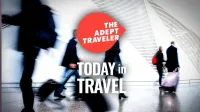Digital ID
Digital ID in the realm of travel is this fascinating concept that's, well, not really new, but it feels fresh every time it's discussed. Imagine stepping into an airport, and instead of the traditional hassle of dragging out passports, boarding passes, and all sorts of documentation, you just waltz through with your digital identity seamlessly verifying itself at every point. It's like science fiction meets everyday life, yet there's palpable hesitation about it all. I mean, isn't there something strange about how we are so comfortable yet skeptical of it at the same time?
On one hand, digital ID is a revolutionary boon, dramatically simplifying the travel process. Efficiency—it’s the buzzword you hear over and over when people speak about this. With digital IDs, you could potentially skip through long lines, save the forest by ditching all that paper, and jet-set across borders with just a swipe or maybe even a glance at your smartphone. Security-wise, digital IDs could provide layered measures that paper can't match. But then, I stop and wonder—isn't it a tad ironic that by seeking more security, we might open up new vulnerabilities? Think about all the personal data swirling around in the ether. It’s almost poetic how the very thing meant to safeguard could also be a risk.
Privacy Concerns
Ah, privacy; it's a topic that can easily twist your brain into knots. When we talk about digital IDs for travel, privacy is often at the heart of the discourse. Some argue that we’re already living in a time where privacy is more fictional than real. Every tap on your phone, every online purchase, it's all tracked. So, what makes the use of digital IDs any scarier? Fair point, some might say. But come to think of it, when it comes to accessing something as fundamental as your identity, allowing digital gateways multiple access points could feel a bit like playing with fire.
Consider this: digital IDs could be stored on devices prone to loss, theft, or hacking. It’s one thing for someone to get hold of your phone; it’s another if they get hold of your very identity. But then again, would losing a digital ID be any different from losing a physical passport? I suppose it’s a reflection of how tech dependence makes us re-evaluate traditional anxieties. When you boil it down, perhaps it’s all about trust. Who do we trust with our digital selves? That question hangs in the air, unanswered, yet vital.
Technological Innovations
The technological backbone of digital ID for travel is, in many ways, the unsung hero. We’re talking about blockchain, biometrics, NFC chips—futuristic-sounding things that, let's be real, half of us probably don't understand in detail. But do we need to? Maybe yes, maybe no. After all, it’s these technologies that could make digital IDs incredibly secure. Or so we’re led to believe. Biometrics, for instance, presents a more unique identifier than a mere piece of plastic. Your fingerprint, your eye scan—they’re inherently you. And yet, as I ponder this, I can't help but think about the fallibility of machines. Even the best systems have glitches, don't they?
It seems both reassuring and troubling, this idea that technology could offer tailored security experiences at border checks and airport counters. But technology fails too. Imagine running late to your flight just when your digital ID app decides to have a hiccup. Come to think of it, the rush of reliance on something designed to be foolproof might lead us to create another beast entirely.
Adoption and Resistance
It’s a bit of a mixed bag when it comes to adopting digital IDs in the travel sector. Some airlines and airports are diving in headfirst—perhaps eager to ride the wave of technological efficiency. Others seem wary, taking a cautious approach. And this caution, it’s crucial to dig into that. Change is never just about technology; it involves shifting perceptions too. Might some of the resistance stem from nostalgia? Maybe there's something comforting about the tangible, the physical documentation, even if it’s an outdated passport.
People tend to resist (or cautiously approach) what they don’t fully understand, which is fair. For digital IDs to gain widespread acceptance, there must be comprehensive communication about the benefits and the risks. Almost makes you wish there was a magic wand to balance this understanding across the board, right? Yet, we've seen numerous technological shifts before, and like anything new, it just takes time for people to get on board, literally in this case.
Reflections on Writing
It’s an odd thing, this act of dissecting digital IDs and travel in writing. Sometimes as I write, thoughts remind me of something that I've once heard or read, leading me down a path of reconsideration. It's like untangling a web of ideas on the page. These devices of convenience provoke us to ask, what is truly convenient and at what cost? In the process, there’s an irony to how digital IDs, meant to condense, simplify, and clarify, actually do the opposite in discussion.
This piece aims to shed light on a compelling topic, yet I wonder if it's clear. Writing about tech and its integration into our lives makes me realize how much of it is still entrenched in uncertainty and developing thought. There’s a fluidity to language and understanding, perhaps mirroring the ever-changing landscape of technology. It sometimes feels like a conversation I’m having with myself, an internal dialogue projecting onto the screen.
TSA Extends REAL ID Deadline and Expands Digital ID Use

